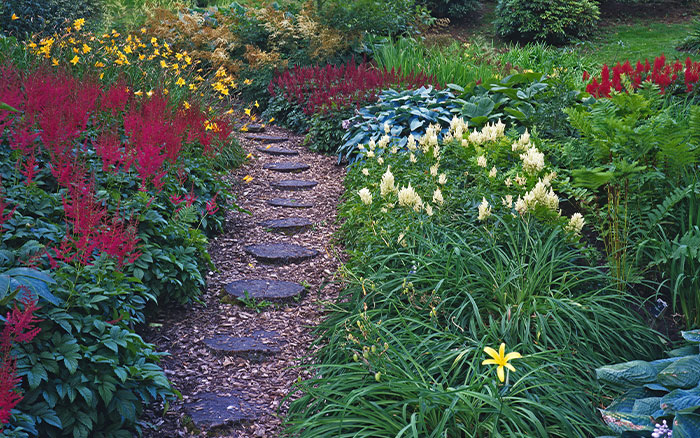If you want to add something to your pond, a bog garden can introduce a variety of different plants to the area. It can also provide new habitats for any visiting wildlife.
Winter is a great time to get started on this project, and by spring you’ll be ready to plant it up.
Building a bog garden
Bog gardens work well in smaller areas, either to convert an existing pond or to add a section onto one that’s in use.
Step one
Plan the spot where you want the bog garden to go and mark it out.
Step two
Dig the area to a depth of about 45cm, keeping the soil to one side.
Step three
Line the hole with sheeting or a pond liner, keeping it place with large stones or bricks. Then use a garden fork to poke holes in the liner spaced 1m apart.

Step four
Next, lay a length of a leaky or porous pipe along the bottom of the liner. Ensure the other end of the hosepipe comes out of the edge, so it can be used as add water as an irrigation system.
Step five
Put the soil back into the hole, removing any weeds or debris whilst doing so. It can be useful to mix in some organic matter. Well-rotted manure, leaf mould, or compost will help to increase the nutrients in the soil.
Step six
Once all the soil has been replaced, you’ll notice that it’s higher than previously. But you should only gently flatten it as compacting it will result in poor growth. Instead, leave the soil to settle and once it’s at the natural level you can begin planting.

What if…

For gardens that are naturally waterlogged most of the year, it may not be necessary for you to add a liner and create a bog garden this way.
But it’s important to bear in mind that the plants in your bog garden do still need drainage and air around their roots, and extremely wet and compacted soil will be detrimental to the plants.

Leave A Comment